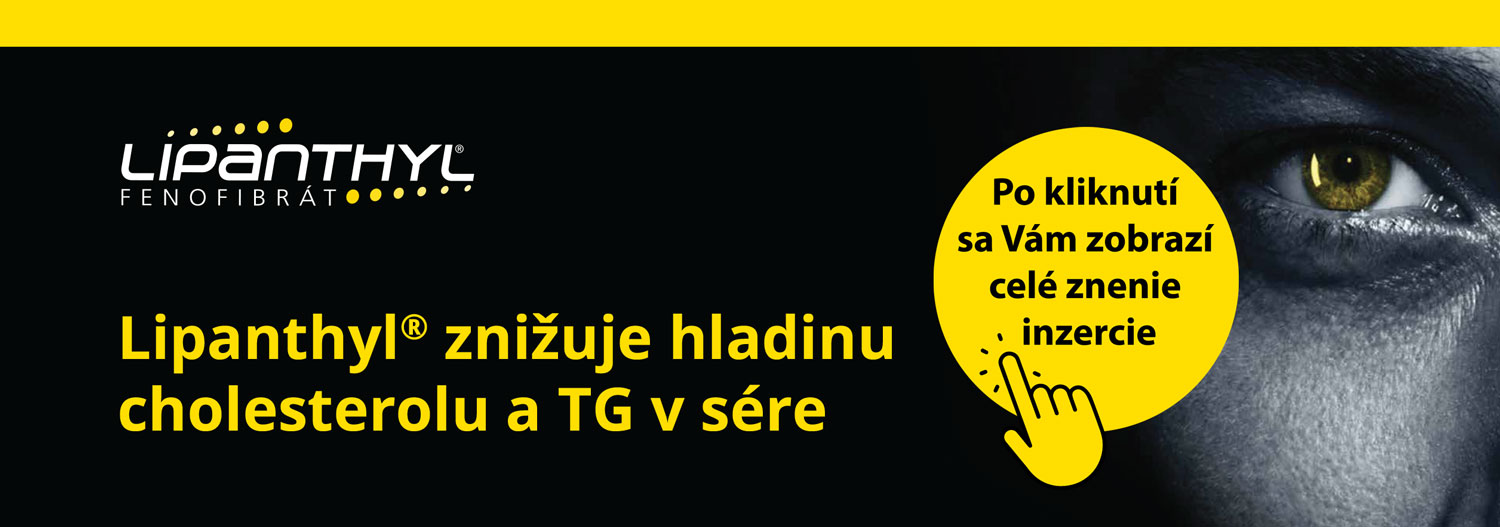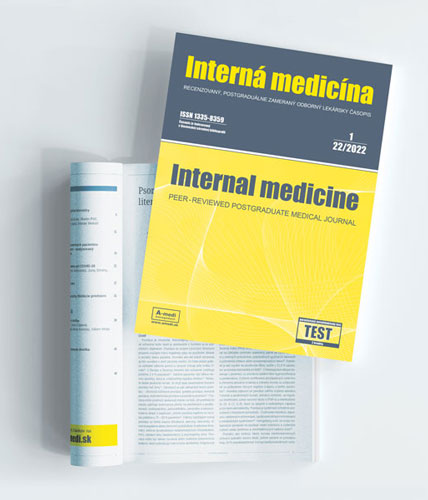Interná medicína
Časopis je indexovaný v Slovenskej národnej bibliografii, Bibliographia medica Slovaca (BMS) a zaradený do citačnej databázy CiBaMed.
Všetky články sú recenzované.
Vydavateľ nenesie zodpovednosť za údaje a názory autorov jednotlivých článkov či inzerátov.
Články na šedých stranách sú firemnými prezentáciami alebo nerecenzovanými informáciami, za ktorých obsah zodpovedá autor.
Reprodukcia obsahu je povolená len s priamym súhlasom redakcie.


